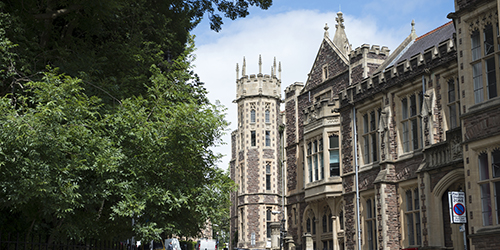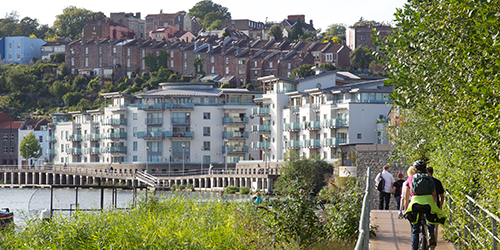Geography
Join a community of leading scientists and social scientists working to understand some of the most urgent challenges facing the world today.
Global reputation
Bristol is ranked first in the UK for 'Geography and environmental studies' research (THE analysis of REF 2021).
Cutting-edge research
Geography at Bristol has been ranked in the top category in every UK national research assessment exercise since 1986. This translates into inspirational teaching informed by the latest studies.
Field trips
Put theory into practice with UK and international fieldwork, from the Avon Gorge in Bristol to Barcelona and Switzerland.
Geography courses for 2025
Single Honours
Geography at Bristol
Geography gives you a unique perspective on global issues - from climate change to human-nature interactions, and environmental consequences - from urban growth to agricultural pollution. It links the physical and social sciences to explore the interactions between people and the planet.
You will learn with internationally renowned experts whose research feeds directly into your teaching, and you will develop the knowledge and abilities to make a difference.
The School of Geographical Sciences is a partner in Bristol Q-Step, part of a national initiative offering enhanced skills training in the social sciences.
Think Big bursaries of £3,000 are available to support first-year international undergraduate students in this subject area.
Geography at Bristol has allowed me to tailor my course to my interests. I really value the emphasis on developing research and scientific skills, and the energy and passion of the lecturers.
Career prospects
.jpg)
Our graduates excel in a variety of careers thanks to the specialist nature of our courses and the skills students acquire in computing, statistics, literacy and critical thinking.
Some of our graduates find work in areas directly related to geography, while others discover their knowledge and training provides them with a route into different professions or further study.
Some of our recent graduates have gone into:
- risk analysis
- management and environmental consultancy
- finance
- technology
- sales and marketing
- communications
- computer software development.
Course structure

At Bristol, you can tailor your studies to pursue your own interests.
Year one of all our courses gives you a contemporary overview of both human and physical geography - plus a UK-based field course. You will also gain a foundation in quantitative research methods with lectures and practical classes. As you progress through your course you can choose to specialise in human or physical geography, or pursue a combination of both. The breadth of specialist units available reflects our world-class research strengths, and you'll use the skills that you gain throughout your studies in a self-directed dissertation project in your final year.
You'll get hands-on experience through our UK and European field classes, the cost of which is included in your tuition fee. Field classes are a great way to bond with your course mates and hone your skills in field techniques and observation, placing your studies in the context of real-world issues.
Sample units may include:
- Ice and Ocean in the Global Carbon Cycle
- Ethnicity, Class and Housing in the City
- Sea Level Past, Present and Future
- Advanced Topics in Critical Political Economy
- Geographic Data Science.
As well as the BSc Geography degree, we also have combined degree options to expand your horizons.
You could spend your third year studying abroad and gain a unique experience in a new country. You can combine your degree with quantitative research methods and develop numeracy and analysis skills to boost your career prospects. There is also an option to combine your degree with Innovation and apply your creativity to nurture interdisciplinary entrepreneurial ventures.
Global impact

Bristol was the first UK university to declare a climate emergency, and our researchers are on the forefront of work into quantifying climate risks and the social impact of climate change.
A former European Green Capital, the UK's first cycling city, and home to flourishing eco-friendly organisations, Bristol is a pioneering green city.
Bristol is a major centre for research and teaching on environmental processes and systems. Join world-leading experts working on some of the biggest challenges of the 21st century.
